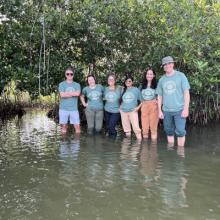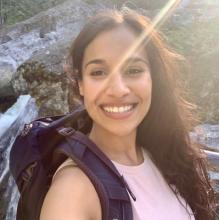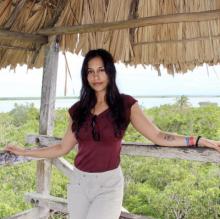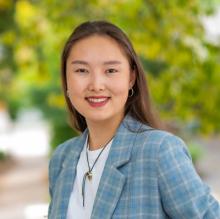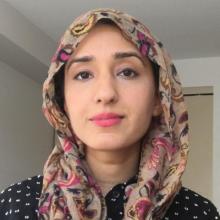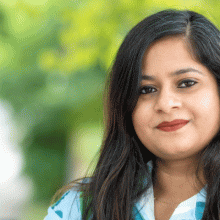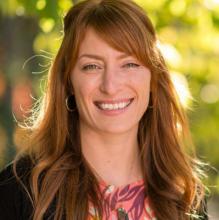Being a Public Scholar is a chance to bring my research outside of academia and collaborate with a network of scholars working to disseminate their findings to the broader public and positively impact some of the world’s most critical issues.
Research Description
I seek to investigate how coastal communities can build resiliency to the impacts of climate change through managing coastal vegetative ecosystems such as mangroves, that provide significant climate mitigative and adaptive capacities. Specifically, I’m interested in understanding the cultural and socio-ecological dimensions of blue carbon crediting projects and other nature-based climate solutions, and whether they are an effective means for coastal communities seeking to protect and restore vulnerable mangrove ecosystems. I’m currently focused on researching two blue carbon projects in Colombia and Fiji, and how they are impacting the local communities and ecosystems.
What does being a Public Scholar mean to you?
For me, being a Public Scholar is a chance to bring my research outside of academia and collaborate with a network of scholars working to disseminate their findings to the broader public and positively impact some of the world’s most critical issues.
In what ways do you think the PhD experience can be re-imagined with the Public Scholars Initiative?
As a Public Scholar, I feel challenged to re-imagine the impact of my PhD research for the larger global community, and to think beyond traditional dissertations to re-design my research in ways that more people can access and understand. I also believe that the PSI experience will support me in asking more unconventional questions and take on projects that combine transdisciplinary perspectives and methods.
How do you envision connecting your PhD work with broader career possibilities?
We have a critical timeline for addressing the most pressing issues surrounding climate change, vulnerable coastal communities, and the health of the oceans and marine ecosystems. Through my PhD work, I’m focused on gaining skills, experiences, and networks that will enable me to better understand and contribute to the global action and conversations around addressing these issues by working with communities in protecting and regenerating their coastal ecosystems. By gaining expertise and communicating my research to a broader audience, I hope to help inform policy measures and public education around marine and climate initiatives.
How does your research engage with the larger community and social partners?
My work is thoroughly tied to participatory community-based research, working with NGOs that are operating blue carbon projects with local environmental and conservation organizations in countries like Colombia and Fiji. I’ve worked previously with Indigenous and youth groups on climate literacy and ocean conservation programs through my work as a national manager with Ocean Wise, and I bring this skill set to my PhD studies in building relationships and working with coastal communities. As part of PSI project, I will make a short documentary focused on my research topic that will also work with local partners and community experts in the field of coastal climate adaptation and blue carbon projects, and help create broader engagement on this issue.
Why did you decide to pursue a graduate degree?
I have much to learn and understand in the world of coastal climate change, and I’m still a marine socio-ecologist in training. There are many knowledge systems, methodologies, writing processes that I’m interested in learning and becoming proficient in. Working on a PhD at IRES helps me pursue my dreams of delving deeply into a topic I care very much about, while growing as a researcher and public scholar.
Why did you choose to come to British Columbia and study at UBC?
UBC is an incredible, world class university, and I’m so grateful to have landed here. Especially through my lab (Climate and Coastal Ecosystems) with Dr. Simon Donner and my colleagues at IRES, I have an amazing support network and a multitude of resources to access for my research. Through initiatives like Public Scholars, I’m excited to be connecting and collaborating with a brilliant group of interdisciplinary researchers who are working on some of the most critical and interesting issues of our time.

